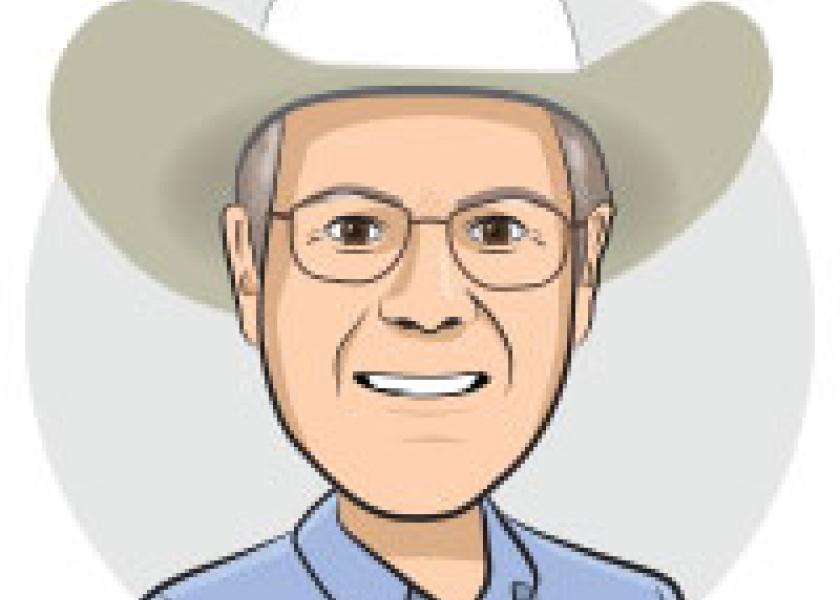Carbon Tax on Beef? Where’s the Science and Logic?

Twelve people have died in Serbia this year due to a measles outbreak, including two children, a tragedy blamed on the lack of vaccinations.
Last year brought the emergence of “raw water” as a drink craze. Raw water is spring water that’s unfiltered, untreated and unsterilized. Oh, and it sells for more than a bottle of fine whiskey. Consumers of raw water have been warned it’s a dangerous fad that promises health benefits but delivers dysentery.
Those are just two popular furors that ignore science – and even simple logic – placing science-deniers at their own peril. Recognizing the sheer ignorance of those trends, health professionals must be frustrated that their constant dissemination of scientific facts goes unheeded.
So it is with beef. You know, as the scourge of the Earth. It’s the giant, man-made environmental asteroid destroying our planet. Such thoughts are rapidly gaining traction among the type of folks who might be inclined to drink raw water.
New York Times contributing op-ed writer Richard Conniff pushed the beef-as-environmental-boogeyman theory Sunday. He claims to love eating beef, but writes “our collective love affair with beef…has gone wrong, in so many ways.” Conniff believes it’s time for a carbon tax on beef.
A carbon tax is not a new idea, but a recent paper published by French scientists suggests a carbon tax on beef as a way to meet European climate change targets. Conniff is intrigued by such a tax, justifying it to readers by regurgitating some often misused sins of livestock, such as: livestock are responsible for “14.5% of global emissions,” which is “more than the emissions produced from powering all the world’s road vehicles, trains, ships and airplanes combined.” Conniff wrote, “Livestock consume the yield from a quarter of all cropland worldwide. Add in grazing, and the business of making meat occupies about three-quarters of the agricultural land on the planet.”
Dude, did you think about that last sentence when you wrote it? Grazing is a logical use of land that is unsuitable for growing kale or heirloom tomatoes. Vast stretches of the Western U.S. should offer an example of that idea, but grazing is also the dominant agricultural activity in places far removed from the Mountain West.
For perspective, Mr. Cunndiff, take a drive west on Highway 2 in Nebraska from Grand Island to Alliance, or go north on Highway 77 in Kansas from El Dorado to Manhattan. There you will find the “sea of grass” Spanish explorer Francisco de Coronado described nearly 500 years ago.
Here’s the context around the statement “livestock occupy three-quarters of the agricultural land.” A third of the Earth’s landmass is desert – i.e. not much food production. A little more than one-third (37%) is devoted to agriculture. Of that, about 11% is used to grow crops.
Logic suggests we would greatly reduce our food supply if we stopped using livestock to convert grass and sunshine into milk and meat. Which is also the scientific conclusion researchers at USDA’s Agricultural Research Service and Virginia Tech arrived at with a study published in the Proceedings of National Academies of Sciences.
Their take? A healthy and sustainable food system depends on having both plants and animals. For those of us who don’t drink raw water, it’s good to know science supports some of the things logic suggests are true.
In an article published on Medium, Sara Place, National Cattlemen’s Beef Association senior director, sustainable beef production research, said the study suggests that without animal agriculture, “We’d reduce greenhouse gas emissions in the U.S. by 2.6 percent, and 0.36 percent globally — but we’d also upset our balanced food ecosystem and lack essential dietary nutrients to feed all Americans.”
Place also noted the important role livestock such as cattle play in our sustainable food system. “Taking human inedible food and ultimately making it nutritious. Specifically, cattle act as upcyclers — meaning they eat grasses and plant matter leftover from human food production and upgrade them into nutritional, high-quality protein. In fact, they produce 19 percent more edible protein than they consume.”
Science and logic both seem to refute the theory that eliminating livestock from our diet would mitigate climate change.







